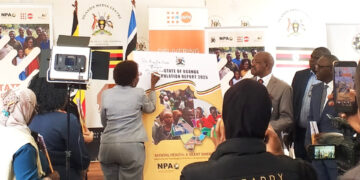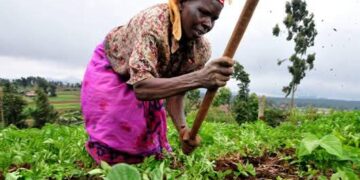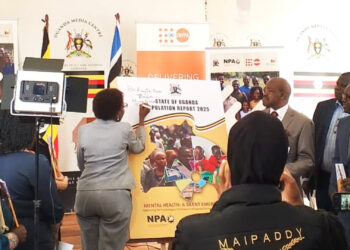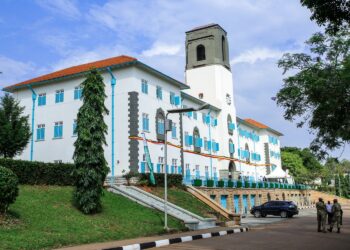OPINION
The Ugandan government and stakeholders must resist short-term gains in favor of long-term, people-centered development as foreign investors and global powers compete for access to Uganda’s resources. In March this year, the media reported that the European Union Delegation to Uganda and the German Federal Ministry for Economic Cooperation and Development (BMZ), offered €6.25 million to support Uganda’s mining industry as critical minerals demand increase.
Africa’s critical raw materials offer a unique opportunity for the countries to leapfrog traditionally fossil fuel based energy systems and transition directly to the renewable energy sources. Available information indicates that global demand for critical raw minerals such as lithium, graphite, rare earth and others will rise by 500% by 2050.
Additionally, Africa hosts 30% of the global critical raw minerals reserves where both Uganda and the DRC host reserves of critical raw minerals with the DRC being a leading producer of cobalt, and one of the leading producers of copper and Uganda with lithium, graphite and rare earth minerals that can potentially drive its clean energy ambitions and economic development by 2040.
Moreso, Dr Robert Muggah from SecDev, a geopolitical risk consultancy based in Canada says that critical minerals are the foundation of the 21st Century economy, noting that they are key to renewable energy, military applications, industrial infrastructure and play a growing strategic role in geopolitics and geo-economics. This means that if these critical minerals are well harnessed, they can help in energy transition and help countries such as Uganda achieve its goals in vision 2040.
However, it is unfortunate that the US led mineral security partnership which includes the European Union and other most powerful economies from the OECD bloc are positioning themselves in Africa’s resource-rich countries Uganda inclusive. These superpowers are rushing to control the supply of these minerals such as lithium, cobalt, copper, and rare earth elements (REEs) which have become essential in the global energy transition. Critical minerals have for instance been at the centre of the Russia-Ukraine conflict and even in the US’ planned intervention.
Africa’s raw materials has driven development abroad, while its populations remain locked in endless cycles of poverty at home, without access to resources to drive a clean and just energy transition because people are not empowered on what the EU’s CRMA means for their countries and ways they can influence it to benefit them.
Government leaders need a deep rethink on how they can address these vast development challenges in the critical mineral sector if countries are to meet the goals of agenda 2063, the UN SDGs for 2030 and other various national development goals while positioning Africa at the Centre of the global clean energy transition agenda. They need to give attention to minerals that are needed to diversify the energy sector and promote Just energy transition in Africa through empowering the populations on the role of critical minerals and examine the impacts of mining on biodiversity because mining of critical raw materials presents risks to people and the environment including forced displacement, child labour and other impacts.
We should know that the countries’ raw materials are a game changer for the energy transition and this can give Africa a potential to become a leading player in the global renewable energy market, creating jobs, driving economic growth and improving energy security. Uganda can also fully benefit from its critical minerals through creating regional collaboration to ensure that the country gains its rightful place in the new power map drawn by the energy transition. In addition, Ugandan civil societies should work across borders to ensure that deals signed by African governments with consumer regions reflect the country’s collective interests.
By Olivia Atuhaire
The Writer is a Research Associate at AFIEGO Uganda
Email: atuhaireolivia72.ao@gmail.com








































